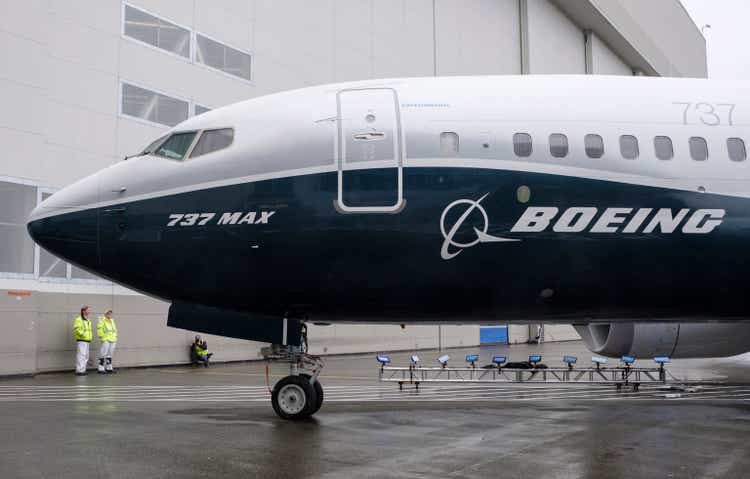
Stephen Brashear
Like that of Boeing (NYSE: BA) quality problems are intensifying, major US airlines are now scaling back aircraft delivery expectations or considering switching to rival plane manufacturers to meet targets.
Boeing (BA) aircraft have been involved in consecutive safety incidents, the the latest of which is a 777-300 flying from Sydney to San Francisco – a United Airlines (NASDAQ:UAL) flight – which was forced to land Monday due to a fuel leak from the undercarriage. This is the fifth accident involving a Boeing aircraft in just seven days.
United (UAL) has asked Boeing (BA) to stop building 737 Max 10s as it plans to order a smaller variant of the plane from Airbus (OTCPK:EADSF). The announcement was made after three of the airline’s flights were involved in accidents last week, in addition to this week’s fuel leak incident.
South West Airlines (NYSE:LUV) now expects delivery of 46 737-8 aircraft in 2024, compared to its previous forecast of 58 737-8 aircraft, which will likely lead to a one-point reduction in its 2024 capacity plans.
Delta Air (NYSE:DAL) is preparing to delay deliveries of the 737 Max 10 until 2027. It is expected to begin receiving the planes next year.
This year’s crashes have only added to the intense scrutiny Boeing (BA) has faced after two deadly crashes involving 737 Max planes in 2018 and 2019.
Regarding the in-flight blowout on the Alaska Air (ALK) flight in January, the National Transportation Safety Board will hold a hearing on August 6 and 7 on its investigation into the accident.
CFRA Research remains bearish on Boeing (BA) and cuts its 2024 EPS estimate by $0.67 to $3.34 (consensus $3.37). “BA’s ability to deliver planes, in the near term, will suffer,” analyst Stewart Glickman warned.
Stocks have moved since the beginning of the year: BA -29.3%ALK -1.2%LUV -0.4%UAL +2.2%FROM THE +6.3%.